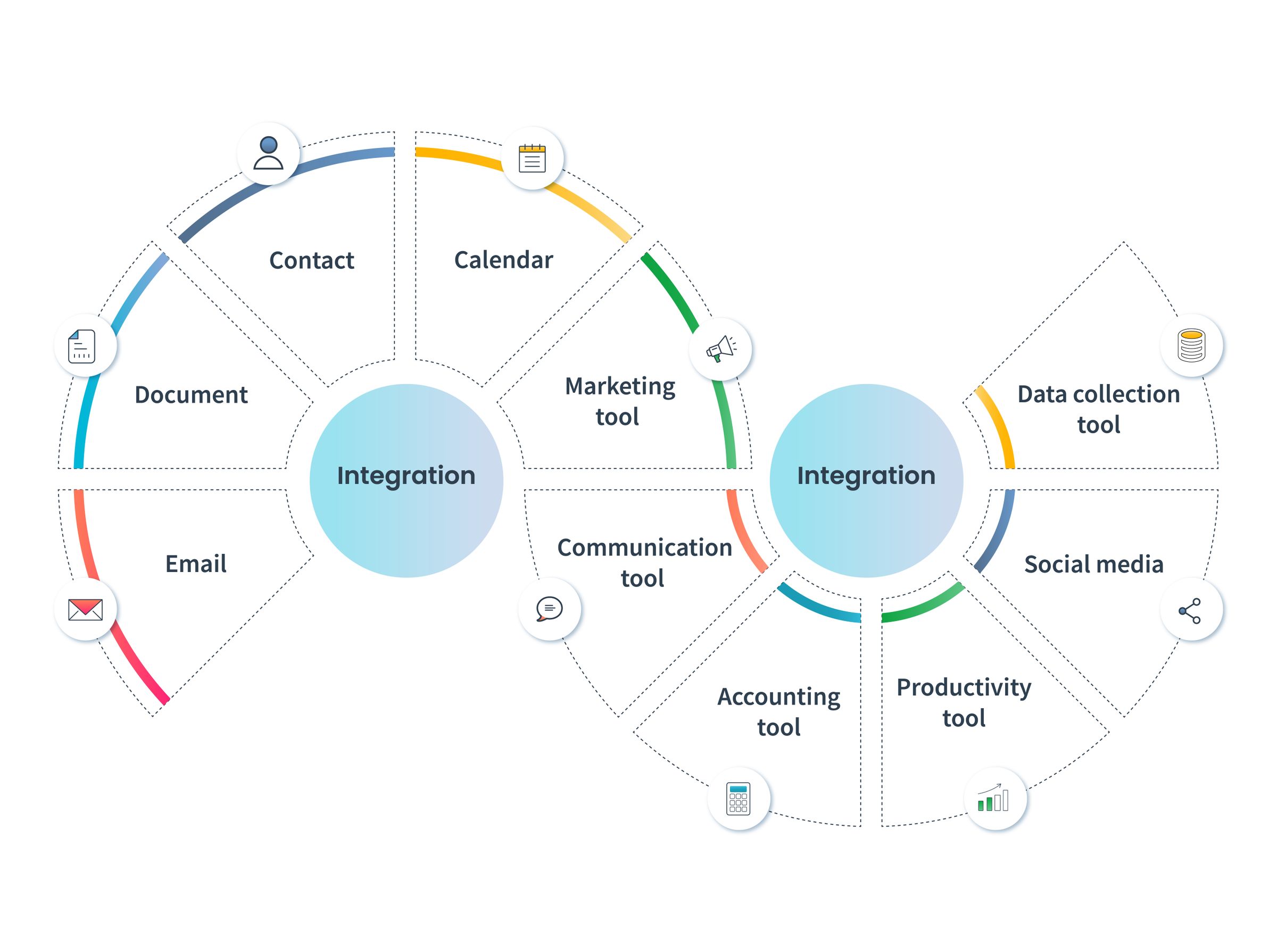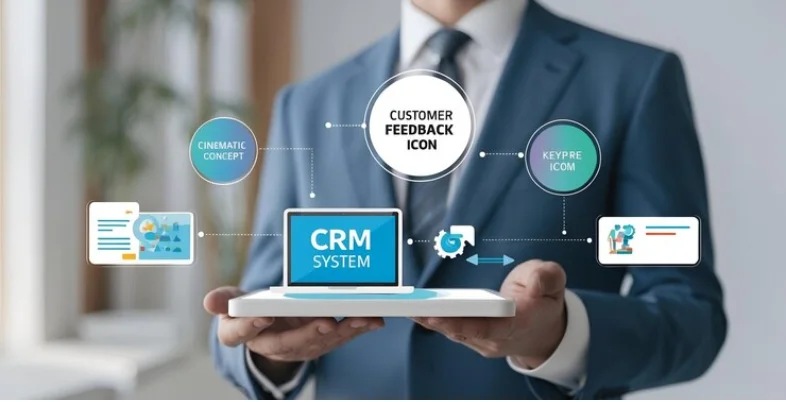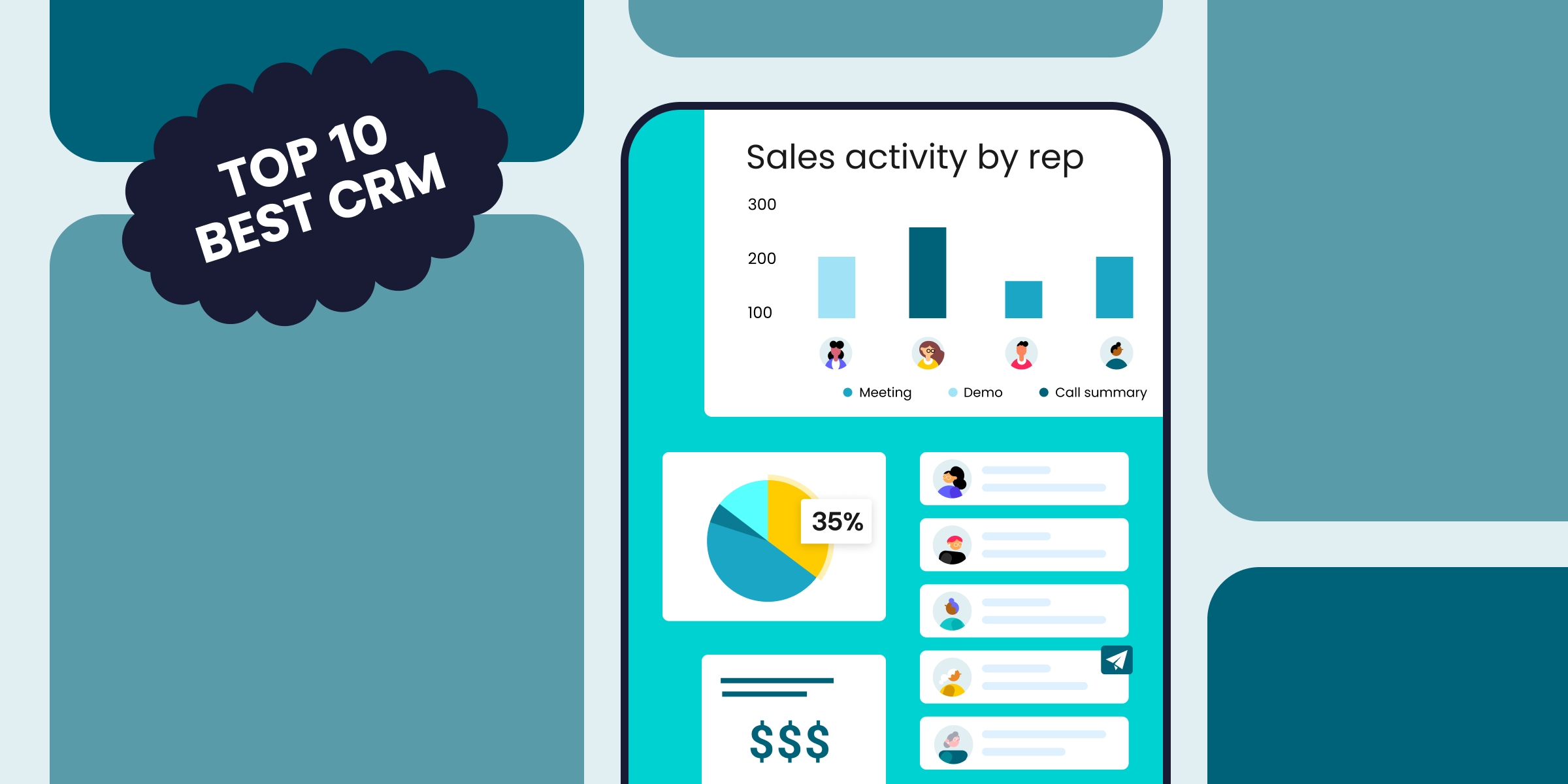Supercharge Your Marketing: A Comprehensive Guide to CRM for Marketing Teams
Supercharge Your Marketing: A Comprehensive Guide to CRM for Marketing Teams
In today’s hyper-competitive digital landscape, marketing teams are constantly seeking ways to work smarter, not harder. The sheer volume of data, the ever-evolving customer journey, and the pressure to deliver measurable results can be overwhelming. That’s where Customer Relationship Management (CRM) systems come into play, acting as the central nervous system for your marketing efforts. This comprehensive guide will delve into the world of CRM specifically tailored for marketing teams, exploring its benefits, features, implementation, and best practices to help you optimize your strategies and achieve remarkable results.
What is CRM for Marketing Teams?
At its core, a CRM system is a technology that helps businesses manage and analyze customer interactions and data throughout the customer lifecycle, with the goal of improving business relationships, assisting in customer retention and driving sales growth. For marketing teams, a CRM is more than just a contact database; it’s a powerful tool that enables them to understand their audience, personalize campaigns, and measure the effectiveness of their strategies. It’s about having all the customer information in one place, accessible to the right people, at the right time.
Think of it as a central hub where you store everything related to your customers: their contact information, past interactions, purchase history, preferences, and even social media activity. This consolidated view allows marketers to gain valuable insights into customer behavior, identify trends, and tailor their messaging to resonate with specific segments of the audience.
Key Benefits of CRM for Marketing
Implementing a CRM system for your marketing team unlocks a multitude of benefits that can significantly impact your overall performance. Let’s explore some of the most compelling advantages:
- Improved Customer Understanding: CRM provides a 360-degree view of your customers, allowing you to understand their needs, preferences, and behaviors. This deep understanding forms the foundation for creating targeted and personalized marketing campaigns.
- Enhanced Segmentation: CRM enables you to segment your audience based on various criteria, such as demographics, purchase history, engagement levels, and website activity. This granular segmentation allows you to deliver highly relevant messages to each group, increasing the likelihood of conversions.
- Personalized Marketing: With a CRM, you can personalize your marketing efforts across multiple channels, including email, social media, and website content. This personalization can lead to higher engagement rates, click-through rates, and ultimately, more conversions.
- Automated Marketing Workflows: CRM systems often include marketing automation features that allow you to automate repetitive tasks, such as email marketing, lead nurturing, and social media posting. This automation frees up your team to focus on more strategic initiatives.
- Lead Management and Scoring: CRM helps you track and manage leads effectively. You can score leads based on their engagement and behavior, allowing you to prioritize the most promising prospects and nurture them through the sales funnel.
- Improved Sales and Marketing Alignment: CRM facilitates better communication and collaboration between sales and marketing teams. By sharing customer data and insights, both teams can work together to achieve common goals, such as increased revenue and customer satisfaction.
- Data-Driven Decision Making: CRM provides valuable data and analytics that allow you to measure the performance of your marketing campaigns and identify areas for improvement. This data-driven approach enables you to make informed decisions and optimize your strategies for maximum impact.
- Increased Customer Retention: By understanding your customers better and providing personalized experiences, CRM can help you build stronger relationships and increase customer loyalty. Retaining existing customers is often more cost-effective than acquiring new ones.
Essential Features of a CRM for Marketing Teams
Not all CRM systems are created equal. When choosing a CRM for your marketing team, it’s crucial to select one that offers the features you need to achieve your goals. Here are some essential features to look for:
- Contact Management: The ability to store and manage contact information, including names, email addresses, phone numbers, and other relevant details.
- Lead Management: Features for capturing, tracking, and nurturing leads, including lead scoring, lead routing, and lead segmentation.
- Marketing Automation: Tools for automating marketing tasks, such as email marketing, social media posting, and lead nurturing workflows.
- Email Marketing Integration: Seamless integration with email marketing platforms to send targeted email campaigns and track their performance.
- Segmentation and Targeting: Capabilities for segmenting your audience based on various criteria and targeting specific segments with personalized messages.
- Campaign Management: Tools for planning, executing, and tracking the performance of marketing campaigns across multiple channels.
- Social Media Integration: Integration with social media platforms to monitor social media activity, engage with customers, and manage social media campaigns.
- Reporting and Analytics: Robust reporting and analytics features to track key marketing metrics, such as website traffic, lead generation, conversion rates, and ROI.
- Integration with Other Tools: The ability to integrate with other tools and platforms, such as sales automation software, e-commerce platforms, and customer service systems.
- Mobile Accessibility: Mobile apps or a responsive design that allows your team to access and manage customer data from anywhere.
Choosing the Right CRM for Your Marketing Team
Selecting the right CRM system is a critical decision that can significantly impact your marketing team’s success. With a plethora of options available, it’s important to carefully evaluate your needs and choose a CRM that aligns with your goals and budget. Here’s a step-by-step guide to help you make the right choice:
- Define Your Needs and Goals: Before you start evaluating CRM systems, take the time to define your specific needs and goals. What are you hoping to achieve with a CRM? What are your biggest pain points in your current marketing processes? What features are essential for your team?
- Assess Your Budget: CRM systems vary in price, from free options to enterprise-level solutions. Determine your budget and stick to it. Consider the total cost of ownership, including implementation costs, training costs, and ongoing maintenance fees.
- Research Different CRM Providers: Research different CRM providers and compare their features, pricing, and reviews. Look for providers that specialize in marketing or offer specific features that are relevant to your team’s needs. Some popular CRM options include HubSpot, Salesforce, Zoho CRM, Pipedrive, and ActiveCampaign.
- Evaluate Key Features: Carefully evaluate the key features of each CRM system and determine which ones are essential for your team. Prioritize features that address your specific needs and goals.
- Consider Integration Options: Make sure the CRM system integrates with other tools and platforms that your team uses, such as email marketing platforms, social media management tools, and sales automation software.
- Read Reviews and Case Studies: Read reviews and case studies from other businesses to get an idea of their experiences with different CRM systems. Look for reviews that are relevant to your industry and company size.
- Request Demos and Trials: Request demos and free trials from the CRM providers you’re considering. This will allow you to test the system and see if it meets your needs.
- Consider Scalability: Choose a CRM system that can scale with your business. As your company grows, you’ll need a CRM that can handle increasing amounts of data and users.
- Evaluate Customer Support: Check the level of customer support offered by each CRM provider. Make sure they offer adequate support channels, such as phone, email, and online chat.
- Choose the Right Implementation Strategy: Consider whether you’ll implement the CRM yourself or hire a consultant or agency to help you. Proper implementation is crucial for the success of your CRM project.
Implementing a CRM for Marketing Teams: A Step-by-Step Guide
Once you’ve chosen your CRM system, it’s time to implement it. Successful implementation is crucial for realizing the full potential of your CRM. Here’s a step-by-step guide to help you through the process:
- Plan and Prepare: Before you start implementing the CRM, create a detailed plan. Define your goals, identify your key stakeholders, and establish a timeline. Assess your current data and identify any data cleansing or migration requirements.
- Data Migration: Migrate your existing data from your current systems to the new CRM. Ensure that the data is accurate, complete, and properly formatted.
- Customize the CRM: Customize the CRM to fit your specific needs. Configure fields, create workflows, and set up integrations with other tools.
- Train Your Team: Provide comprehensive training to your team on how to use the CRM. Ensure that they understand the features and functionality of the system and how to use it to achieve their goals.
- Test the System: Test the system thoroughly to ensure that it’s working correctly. Identify and resolve any issues before launching the CRM to your entire team.
- Launch the CRM: Launch the CRM to your team and provide ongoing support. Monitor the system’s performance and make adjustments as needed.
- Monitor and Optimize: Regularly monitor the performance of your CRM and make adjustments to optimize its effectiveness. Analyze key metrics and identify areas for improvement.
Best Practices for CRM Success in Marketing
Implementing a CRM is just the first step. To maximize the benefits of your CRM and achieve long-term success, it’s essential to follow best practices. Here are some key recommendations:
- Clean and Accurate Data: Maintain clean and accurate data in your CRM. Regularly update contact information, remove duplicates, and validate data to ensure that your marketing efforts are targeted and effective.
- Consistent Data Entry: Establish consistent data entry processes to ensure that all team members are entering data in the same way. This will help maintain data accuracy and consistency.
- Segmentation and Targeting: Use your CRM to segment your audience and target specific segments with personalized messages. This will increase the relevance of your marketing campaigns and improve your conversion rates.
- Automate Workflows: Automate repetitive tasks, such as email marketing, lead nurturing, and social media posting, to save time and improve efficiency.
- Integrate with Other Tools: Integrate your CRM with other tools and platforms, such as email marketing platforms, social media management tools, and sales automation software, to streamline your marketing processes.
- Measure and Analyze: Regularly measure and analyze the performance of your marketing campaigns. Track key metrics, such as website traffic, lead generation, conversion rates, and ROI, to identify areas for improvement.
- Provide Ongoing Training: Provide ongoing training to your team on how to use the CRM effectively. Keep them up-to-date on the latest features and functionality.
- Foster Collaboration: Encourage collaboration between sales and marketing teams. Share customer data and insights to improve communication and align goals.
- Review and Adapt: Regularly review your CRM strategy and make adjustments as needed. The marketing landscape is constantly evolving, so it’s important to stay flexible and adapt to changing customer behaviors and preferences.
- Prioritize Data Security: Implement security measures to protect customer data. Ensure that your CRM system is secure and that access to data is restricted to authorized personnel.
CRM and Marketing Automation: A Powerful Combination
Marketing automation and CRM are like two peas in a pod. When combined, they create a powerful synergy that can transform your marketing efforts. Marketing automation tools, often integrated within CRM systems or working alongside them, enable you to automate repetitive tasks, personalize customer interactions, and nurture leads through the sales funnel.
Here’s how they work together:
- Lead Nurturing: CRM data provides the insights to understand lead behavior, and marketing automation uses this information to send targeted content and nurture leads through the sales funnel.
- Personalized Email Campaigns: CRM data is used to segment your audience and personalize email campaigns, increasing engagement and conversion rates.
- Behavioral Triggered Emails: Marketing automation can trigger emails based on specific customer behaviors, such as website visits, form submissions, or abandoned carts, delivering highly relevant messages at the right time.
- Lead Scoring: CRM systems can score leads based on their engagement and behavior, and marketing automation can automatically trigger actions based on lead scores, such as sending them to sales representatives.
- Workflow Automation: Automate repetitive tasks, such as sending welcome emails, follow-up emails, and appointment reminders, to save time and improve efficiency.
The Future of CRM in Marketing
The future of CRM in marketing is bright, with exciting advancements on the horizon. Here are some trends to watch:
- Artificial Intelligence (AI): AI is playing an increasingly important role in CRM, powering features such as predictive analytics, personalized recommendations, and automated customer service.
- Machine Learning (ML): ML algorithms are being used to analyze customer data, identify patterns, and predict future behavior, enabling marketers to make more informed decisions.
- Voice Assistants: Voice assistants are becoming more integrated with CRM systems, allowing marketers to access and manage customer data using voice commands.
- Mobile CRM: Mobile CRM solutions are becoming more sophisticated, providing marketers with access to customer data and marketing tools on the go.
- Hyper-Personalization: Marketers are focusing on hyper-personalization, using CRM data to create highly personalized experiences for each customer.
- Customer Data Platforms (CDPs): CDPs are emerging as a complementary technology to CRM, providing a centralized hub for collecting and managing customer data from multiple sources.
- Focus on Privacy and Data Security: As data privacy regulations become more stringent, CRM providers are placing a greater emphasis on data security and compliance.
Conclusion: Embracing CRM for Marketing Excellence
In conclusion, CRM is an indispensable tool for marketing teams looking to thrive in today’s competitive landscape. By understanding your customers, personalizing your campaigns, and automating your workflows, you can achieve remarkable results. Choosing the right CRM, implementing it effectively, and following best practices are essential for success. As technology continues to evolve, the future of CRM in marketing is poised for even greater innovation, offering exciting opportunities for marketers to connect with their audience and drive business growth. Embrace the power of CRM, and unlock the potential of your marketing team.




